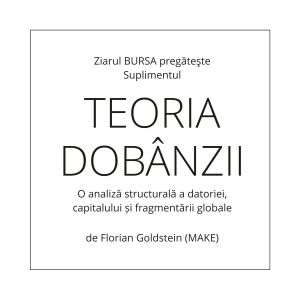Hungarians from the counties of Covasna and Harghita must continue the fight for the autonomy of the Szeklerland, argued the participants at the Băile Tuşnad Summer University, before Prime Minister Marcel Ciolacu asked his counterpart Viktor Orban to show "moderation" in the speech that the head of the Budapest government was to support him at that event on Saturday.
According to the Hungarian-language news site Szekelyhon.ro, some of the guests at the Summer University at Băile Tuşnad, an event that took place last week, said that in Szeklerland the world is Hungarian as long as Oltul and Muresul contribute to the livelihood of the Hungarian community and how long 500,000 Hungarians live in that area out of the almost one million remaining in Transylvania, as stated by one of the guests for the cited source. According to him, in the last 30 years, almost a million Hungarians emigrated, which considerably reduced the number of members of the ethnic community still living in Transylvania.
The quoted source shows that in the debates that took place at Băile Tuşnad, there was talk about the responsibility of the intellectual and political elite and the need for change, because it seems that in recent years the involvement of the Hungarian elite in the fight for the autonomy of the Szeklerland has decreased. Erika Benko, the director of the Legal Assistance Service for Minorities Miko Imre established by the UDMR, stated that the autonomy of the Szeklerland would be "the guarantee of the survival of Hungarians and their rights, given that the Romanian political system is one of the most unstable in all of Europe" . She added that "in such an unstable system, our rights are not guaranteed" and that, given the way the European Union and international organizations treat the fate of national minorities, the Hungarians of the Szeklerland need this social contract.
Attila Gyorgyi, the vice-president of the Transylvanian Hungarian Association, said that autonomy should not be seen as a goal, but as a tool that, if successfully implemented, will result in territorial and economic autonomy and self-determination based on stable pillars that will lead to a huge responsibility.
Arpad Antal, the mayor of the municipality of Sfântul Gheorghe, declared that the Hungarians from the Szeklerland are not guests in this area, that this is their homeland and that every election in Transylvania is important for the UDMR, including the parliamentary elections on December 1. Arpad Antal said: "From time to time, others try to tell us that we, the UDMR, are an insignificant minority in this country, but we are not an insignificant minority; especially since two thirds of the Hungarian people in Romania live in localities led by Hungarian mayors". He also spoke about the administrative-territorial reorganization, by development regions, which is being discussed within the central authorities in Bucharest, and said that such an organization would push medium-sized cities into the background.
"We cannot allow the public administration of Romania to be reorganized in such a way as to be detrimental to the Hungarian community", concluded the mayor of Sfântu Gheorghe, from Covasna county.
Attila Korodi, the mayor of the municipality of Miercurea Ciuc (Harghita county), argued that it is necessary for the localities in the Szeklerland to continue their development, because otherwise their regression will have a negative impact on Transylvania as well. He qualified the next period as a difficult one, because local administrations need co-financing and the state should guarantee predictable long-term credit systems for territorial administrative units in our country.
Zoltan Soos, the mayor of Târgu Mureş, stated that the first objective is for the three Szekler counties - Covasna, Harghita and Mureş - to remain united, and the final objective is for the future regional capital to be in Sfântu Gheorghe, Mirecurea Ciuc or Târgu Mureş.
The above statements preceded the statements of Zsolt Semjen, the Deputy Prime Minister of Hungary, who declared at Băile Tuşnad that the Budapest government requests the states with which it signed the Trianon treaty to give the Hungarian community the same rights as members of the respective nations living in Hungary. The Budapest Executive official stated that the Hungarian government's goal is that those who want to remain Hungarian stay, and they will receive all the support for that.
Zsolt Semjen pointed out: "Where the Hungarian consciousness flickers, we will give everything so that this spark turns into a flame."









































